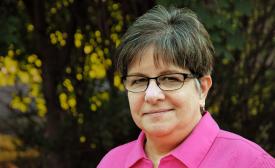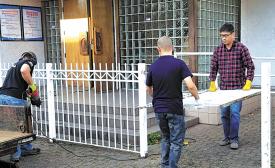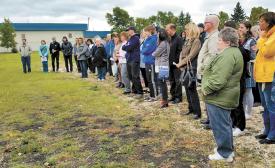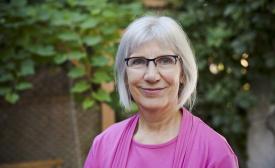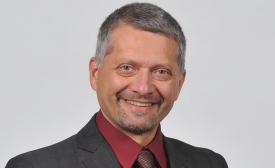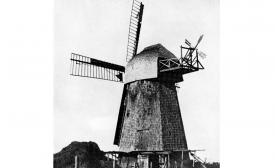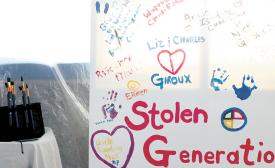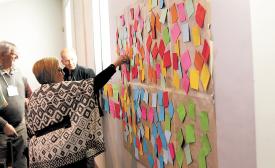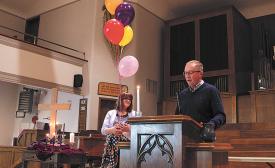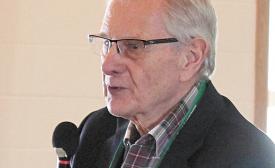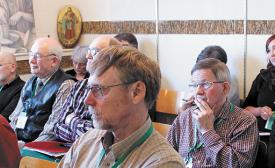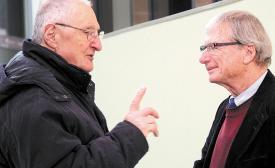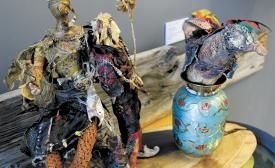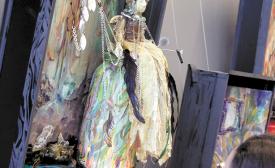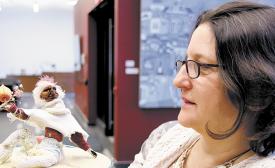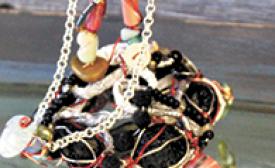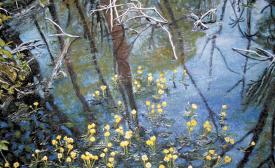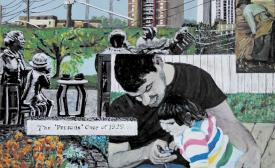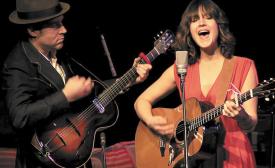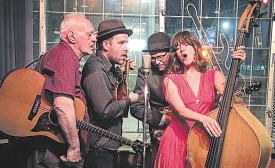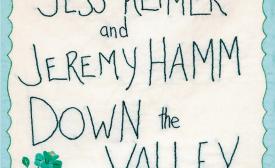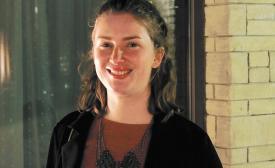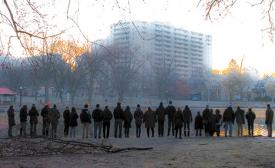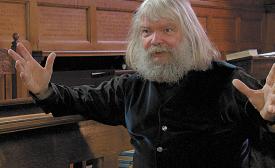Volume 22, Number 7
The business of church
‘A neighbour to all who come’

‘We’re starting to build momentum here . . . to build relationships and have good conversations with people who wouldn’t otherwise come to our church building.’ —Pastor Lydia Crutwell, First United Mennonite Church, Vancouver (First United Mennonite Church photo)
Mennonites have always been known as a migrant people, whether moving from Switzerland to North America, from the Netherlands to Prussia and Ukraine, and from Europe to South America and eventually to Canada.
Readers write: March 26, 2018 issue
It’s important to listen well
Re: “The skill and soul of listening,” and “What kind of Mennonite?” (Feb. 12, pages 16 and 2, respectively).
‘Our missionaries’
More than a decade ago, my family and I were privileged to serve as church planters in southern Italy. We were Mennonite Church Canada Witness workers seconded to what is now Virginia Mennonite Mission, and were financially supported by many friends, family members and our home congregation, Community Mennonite Fellowship in Drayton, Ont.
Acting like adults
In a phone conversation with a friend, she reveals her struggle with an event she is planning. Given that the gathering will be held in a small space, there are a limited number of people she can invite. After telling me whom she thinks she will include, she speaks of others, those left off the guest list. “I feel badly because they might be hurt,” she sighs. “I’m not sure what to do.”
Buried treasure
Lately, I have had several conversations with people about downsizing or simplifying their estates. Some talk about rearranging their financial affairs to make life easier for their executors someday. Others face the physically and emotionally demanding task of moving from the homes they have lived in for many years to smaller, more manageable accommodations.
Steinbach windmill
Mennonites learned how to harness the wind while in the Netherlands, and used this knowledge in the 16th and 17th centuries in Prussia, where wind-powered mills were primarily used to pump water to drain land. Between 1876 and ’78, four windmills were built in the Steinbach, Man., area by Mennonites.
What does ‘sorry’ mean?
“Sorry” is a very Canadian expression, but what does it mean?
To the more than 200 Sixties Scoop survivors gathered at the Amiskwaciy Academy in Edmonton on March 1, 2018, the word is problematic. The hearing is the last of six events held across Alberta by the NDP government in an effort to make an upcoming government apology meaningful.
‘Is God still messing with us?’
“Is God still in the business of breaking into people’s lives? Is God still messing with us?” asked Brian Bauman during the opening worship service at Mennonite Church Manitoba’s annual general meeting. Bauman, MC Eastern Canada’s mission minister, called the people of MC Manitoba to discern where God is working in their church and what they are doing about it.
An ‘Easter Fools’ Day’ rant
Giving the bucket list a ‘deeper’ meaning
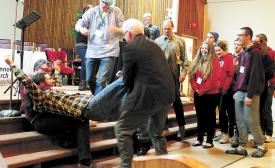
Friends or foes? Visiting regional church executive ministers Tim Wiebe-Neufeld (MC Alberta) and David Martin (MC Eastern Canada) are part of a band of robbers attacking an innocent traveller, played by Ben Martens Bartel, during a dramatic reading of Jesus’ Parable of the Good Samaritan. (Photo by Donna Schulz)
Deepening. The word resonated throughout Mennonite Church Saskatchewan’s 2018 annual delegate sessions.
Evangelical social justice
I find the Catholic process of declaring saints un-Anabaptist and weird—especially the part about verifying miracles–but the Vatican’s latest candidate for sainthood is someone who has shaped my Mennonite faith.
Psalms of lament in times of violence
What do we do with Psalm 137? While “Sing us one of your songs of Zion” (verse 3) rings in Christian minds as a sign of deep grief, the accompanying “Happy shall they be who take your little ones and dash them against the rock!” (verse 9) strikes most as exceedingly difficult.
‘That’s the Spirit’
Talking birds, paper and rose petal beads, walking jewellery, found-art sculptures. With these and other works, Carolyn Good’s recent show at the WalterFedy-Architecture, Engineering, Construction offices on Queen Street in Kitchener showed off her Mennonite roots of reusing and recycling.
The Anthrocene revisited
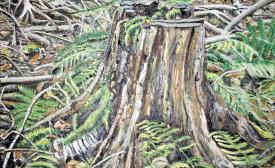
‘Death and Life.’ A stump rotting away at Hidden Acres Mennonite Camp speaks of a life well lived and a death creating new life. (Photo by Canadian Mennonite)
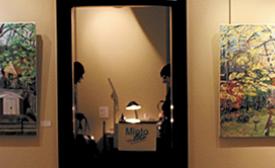
Annemarie Rogalsky’s Waterloo ‘Hinterland’ paintings, a four-season cycle, at her solo show ‘The Anthrocene Revisited’ at the Minto Gallery in Harriston, Ont., in February. (Photo by Canadian Mennonite)
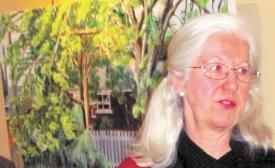
Annemarie Rogalsky presents her artist’s statement at the opening of her solo show ‘The Anthrocene Revisited’ at the Minto Gallery in Harriston, Ont., on Feb. 4. (Photo by Canadian Mennonite)
Annemarie Rogalsky, a member of First Mennonite Church in Kitchener, Ont., had a solo show of her landscapes at the Minto Gallery in Harriston during the month of February. Of her images, she says:
Gospel songs with an edge
Jess Reimer recalls the first time a friend told her about Jeremy Hamm, the man who would become her musical partner and husband.
“I remember being excited there was a guy who wasn’t a senior citizen who was into bluegrass like me,” she says.
A biblical call—to justice and peacebuilding
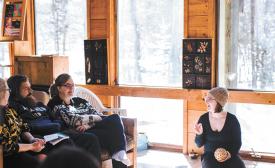
Jessica Reesor Rempel leads a session at PiE’s recent Winter Camp for Grown-ups’ retreat. (Photo by Jacquie Reimer)
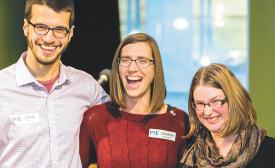
‘I don’t think anyone else has a job quite like this,’ says Jessica Reesor Rempel, right, pictured with PiE co-founder Chris Brnjas, left, and Tamara Shantz, centre, PiE’s current pastor. (Photo by Dave Klassen)
Jessica Reesor Rempel enjoys bringing people together and helping them find meaning.
Christian media production done right
When The Fantasy Makers, a new documentary, premiered at Winnipeg’s Real to Reel Film Festival last month, the credits included the name of a young Canadian Mennonite University (CMU) student: Josh Heida.

